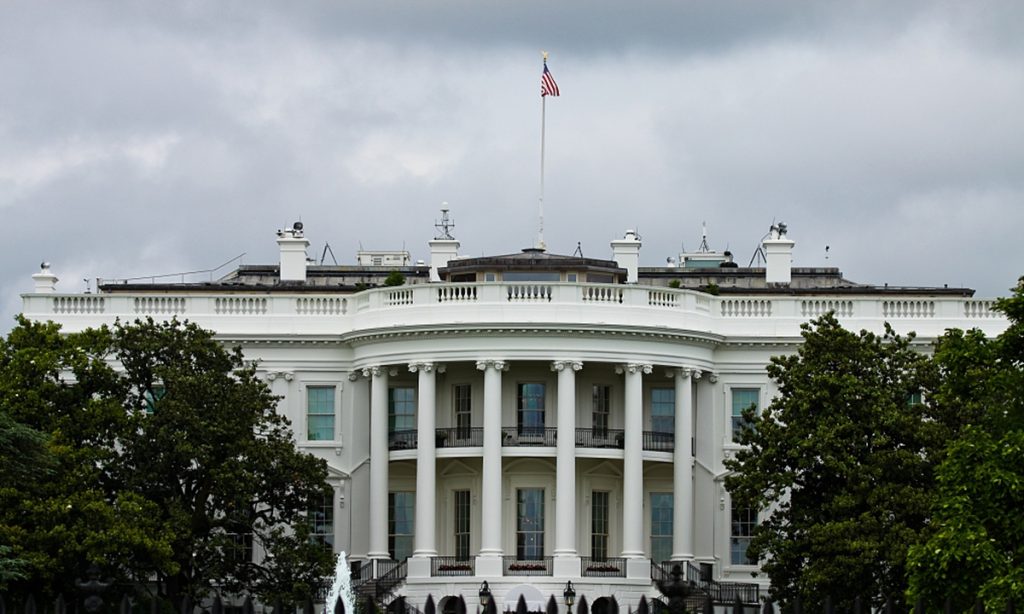Biden’s memorandum aims to set framework for Trump’s China policy, reflects errorneous understanding of China: experts

US President Joe Biden has recently signed a memorandum establishing the so-called China censorship monitor and action group, which according to Chinese experts highlights the outgoing president's fresh efforts to ensure that the incoming US administration's China policy does not deviate from the framework and guardrails set by Biden himself and shall limit President-elect Donald Trump's flexibility and autonomy when it comes to his China policy
The move itself also reflects a fundamental error in the Biden administration's understanding of China, Lü Xiang, a research fellow at the Chinese Academy of Social Sciences, said.
The primary mission of the task force is to develop and execute a federal government strategy "to oversee the development and execution of an integrated Federal Government strategy to monitor and address the effects of any efforts by the PRC to censor or intimidate, in the United States or in any of its possessions or territories, any United States person, including a US company that conducts business in the PRC, exercising its freedom of speech," according to the memorandum text released by the White House.
It is stipulated that within 180 days of the date of this memorandum, the group, or the task force as referred in the memorandum, shall submit the first annual report to the president and the appropriate congressional committees, and make it publicly available to the extent consistent with national security and other executive branch confidentiality interests.
Biden, via such move, aims to institutionalize his China policy before leaving office. This is a clear attempt by Biden to expand his power and ensure that his diplomatic legacy on China is not discarded with a change of administration, Li Haidong, a professor at China Foreign Affairs University, told the Global Times on Saturday.
The Task Force, according to the memorandum, shall meet not less frequently than twice per year to oversee the development and execution of the integrated federal government strategy.
The task force will be led by the Assistant to the President for National Security Affairs and the Director of the National Economic Council, with members drawn from multiple US government departments, including the Department of State, the Department of the Treasury, and the Department of Defense.
It is uncommon for a sitting president to make significant decisions on domestic or foreign policy in their final year, but Biden is an exception, Li said. "Instead of winding down, he has continued to push forward with key policies on major issues, thereby limiting President-elect Donald Trump's flexibility and autonomy when it comes to his China policy. In a way, this represents the ongoing continuation of the partisan rivalry in US foreign policy."
The conclusions drawn by the task force will likely place China squarely within the competitive framework that the US strategically defines, making the group's work an instrument in the ongoing strategic competition between the two countries, he said.
By framing issues in terms of freedom of speech, monitoring, and related areas, the US leaves the definition of boundaries to these committees. Once those boundaries are set, they will guide US actions in ways that further the strategic competition against China. This approach often leads to violations of international law, infringements on sovereign rights, and breaches of privacy and individual freedoms, the expert said.
Lü told the Global Times on Saturday that the form of memorandum holds less authority than an executive order, as it is more of a guiding document. Being introduced at the end of the current administration, the impact on the new government's execution could be limited.
However, such a memorandum can have an entirely negative effect on the establishment of trust between China and the US. It may introduce a subtle, harmful odor into the political atmosphere between the China and the new US administrations, potentially creating a "chilling effect" that could hinder normal exchanges between the two countries.
It also reflects a fundamental error in the Biden administration's understanding of China, as it is driven by fear and insecurity, mistakenly interpreting some domestic dissent as the result of Chinese coercion, he said.
On December 3, Chinese Foreign Minister Wang Yi, also a member of the Political Bureau of the CPC Central Committee, met in Beijing with a US delegation headed by Susan M. Elliott, President and CEO of the National Committee on American Foreign Policy. Wang said China's foreign policy, including its policy toward the US, maintains stability and continuity. This reflects the steadiness and credibility of a major country. No matter what changes within the US, China stands ready to improve and develop China-US relations based on the three principles of mutual respect, peaceful coexistence, and win-win cooperation.